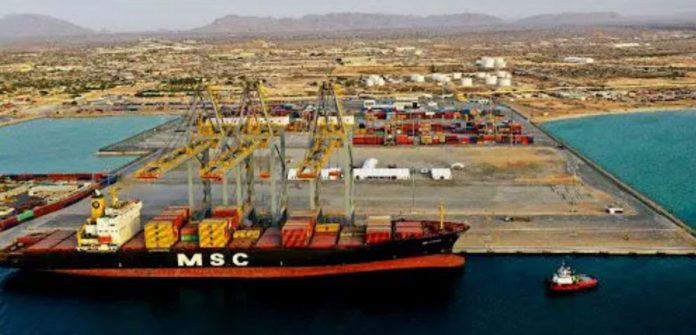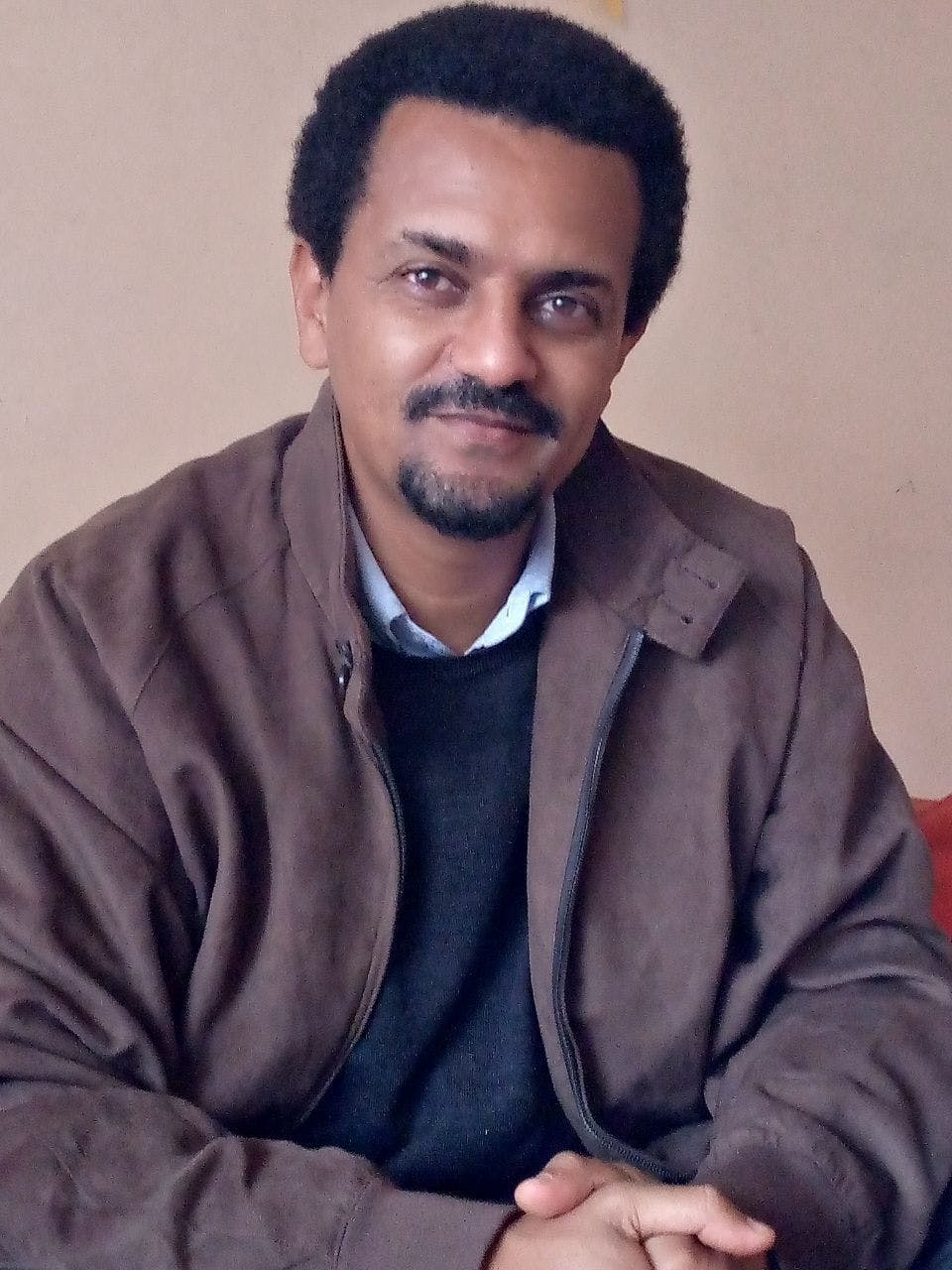The news of Ethiopia’s exclusion from the Berbera Port deal followed the passage of the US’ Somaliland Partnership act.
The Ethiopia-Somaliland partnership stands as one of the few successful strategic alliances in the Horn of Africa. In spite of political upheaval emanating from Somaliland’s lack of recognition by the international community, Ethiopia and Somaliland continue to work together to promote their economic and diplomatic aims.
After gaining independence from Britain in 1960, Somaliland joined the former Trusteeship under the Italian government leading to the formation of the Republic of Somalia. But an internal struggle – led by the Somalia National Movement (SNM) against the Siyad Barre regime – shattered the shaky union with Somaliland declaring independence in 1991.
Ethiopia supported SNM and armed groups from the northern Somalia region and following Siyad Barre’s bombardment of the regional capital Hargeisa, Ethiopia became a second home for Somaliland refugees fleeing the war.
This further cemented the people-to-people ties. The establishment of regular flights by Ethiopian Airlines after 1991 to the cities of Hargeisa and the seaport of Berbera cemented business and diplomatic ties.
In her article in the Journal of African Studies-Politeja, Katerina Rudincova (June 2021) wrote about Ethiopia’s first official reference to Somaliland as a sovereign state and its President as Head of State. According to her, the recognition came during the 9th African Union summit in Accra, Ghana held between 25 and 29 June 2007. Prior to the tripartite deal on the development of Berbera Port, Ethiopia and Somaliland signed a trade agreement in May 2005 allowing Ethiopia to use the port. The agreement came following President Egal’s visit in 2002. This reinforced Ethiopia’s recognition of Somaliland in the Summit, making the country one among the few to start diplomatic and trade relations.
Over the decades, more countries gave de facto recognition to the Somaliland government through establishing formal and informal engagements. Somaliland currently has diplomatic missions in Ethiopia, Djibouti, Kenya, Ghana, South Africa, South Sudan, Yemen, Canada, USA, UK, Sweden, Norway, France, and Belgium. The Somaliland passport is accepted in Ethiopia, Djibouti, Uganda, UK, Sweden, and the USA.
Beyond the now well-established cultural and historical relations, cooperation in strategic economic, transport, and logistics sectors came with the launching of the $400 million Berbera Port project in 2019. This further underpinned the Ethiopia-Somaliland geostrategic partnership.
A Memorandum of Understanding signed between Somaliland, Ethiopia, and the Emirati logistics company DP World targeted the development of a road connecting the Port to the Somali region of Ethiopia creating business opportunities from the anticipated growth and expansion of small towns along the Berbera-Addis Ababa corridor.
In a statement Somaliland Ambassador to Ethiopia, Mohamed Ahmed Mohamoud gave to the news outlet SomTribune in December 2021, Somaliland intended to involve Ethiopia in the Berbera Port operation and development of the Berbera corridor.
The ambassador said he understood Ethiopia’s position to diversify its options to access more ports. He further disclosed his government’s commitment to offering Ethiopia the infrastructure it needs to facilitate import-export business operations through the Berbera Port.
However, a recent statement from the Somaliland Minister of Finance, Dr. Said Ali Shire, came as a surprise to many as he was quoted by Puntland Post saying: “Under the Berbera Port Agreement DP World owns 65% shares, Somaliland Administration has 35%”, excluding Ethiopia officially from its 19 percent stake in the Berbera Port share.
Shire added that Ethiopia’s acquisition of a 19 percent share was a verbal agreement reached in the United Arab Emirates and it had not materialized into action. His remarks sparked controversy over the deal among many Ethiopians and Somalilanders.
Political analysts, such as Dr. Adali Warsame, who is also an expert in Somaliland government affairs research, have opinions that “Ethiopia did not lose its stake; neither did the republic of Somaliland government revoke the contract”. The response on his Twitter handle came in a reaction he made to a post by the Addis Standard newspaper.
Dr. Adali added that Somaliland and Ethiopia still have excellent relations and the reality was that Ethiopia did not fulfill the conditions of the agreement in order to secure a 19% holding in the Berbera port business. His comments target Addis Standard’s report that stated the decisions of the Somaliland government as “a reversal of the agreement made in 2017 between Ethiopia, DP World, and the Somaliland Port Authority”.
On a related note, asked to further comment on Ethiopia’s reaction to the issue on June 10, the Ethiopian Ministry of Foreign Affairs spokesperson, Ambassador Dina Mufti, refrained from responding, mentioning that the issue is under investigation.
To the surprise of many, the Somaliland government’s decision came immediately after the inaugural ceremony of Somalia’s President Hassan Sheikh Mohamud, held in Mogadishu on the 9th of June 2022, in the presence of heads of state of different countries including PM Abiy Ahmed.
This news was followed by the declaration of the deliberations of the United States Senate Committee on Foreign Relations on the passage of the Somaliland Partnership Act making people closer to the Horn politics look for the rat fank in the room.
The purpose of the Act is to establish a security partnership between the United States and Somaliland. However, it clearly illustrates USA’s intentions to run a military monopoly of the Horn of Africa and is, in effect, an extension of the securitization project of the West.
Section 2 of the Act states that security situations are different in Somaliland than Mogadishu, and require a different approach, assistance, mode of engagement, and deployment of State Department and USAID personnel.
It is a departure from the One Somalia Policy bringing into a context of change from a one-size-fits-all approach to Somalia to justify US presence in the Red Sea coast and Gulf of Eden. The One Somalia Policy of the US still considers Somaliland as part of Somalia referring to Somalia’s 1960 borders.
This may sound like a promising start for the Somaliland government but it is less likely to bargain for recognition in the foreseeable future due to the fact that the US only sees winning oil exploration concessions as an alternative energy prize in order to deal with deficits due to the Russia-Ukraine war.
The US recognizes Somalia’s Provisional Constitution and the renewed US interest in Somalia on energy development and resumption of counter-terrorism operations would definitely require it to maintain its policy that accords due recognition sovereignty and territorial integrity of Somalia.
A scholar at Addis Ababa University advises Somaliland to avert potential repercussions from making hasty decisions.
According to the scholar, the Somaliland government’s reaction in communicating the passage of the Act to its supporters as an achievement is uninformed of the devils in the detail. He believes that the Act will have unhealthy implications for Somaliland’s future engagement with Ethiopia and its other neighbors.
The Act, in his view, allows the Department of State to report to Congress on engagement with Somaliland and in consultation with the Secretary of Defense. The State Department oversees the establishment of the partnership between Somaliland and the USA and requires the Secretary of State to report annually to Congress regarding assistance provided to the Somaliland government in security partnership. The provisions in the Act, however, do not recognize Somaliland as an independent state.
The United States, in Section 5 of the Act, has included articles that explicitly express the ongoing protection of the US and its allied maritime interests in the Berbera port and Bab-el-Mandeb Strait. Accordingly, Somaliland is expected to serve the USA and its allies in the maritime gateway to East Africa. This will have a role in countering the presence of Iran and China in the Gulf region.
The United States, for its part, commits to bolstering security and defense cooperation and capabilities between Somaliland and Taiwan. The inclusion of Taiwan in the provision is an outright aggressive call that will raise tensions between Somaliland and China in the region. Experts suppose that the US needed Taiwan’s presence as an instrument to refute Chinese interests in Somaliland and the Red Sea region.
The Partnership Act is a legislative document that expresses the US and its allies’ national maritime security interests. This is in order to sustain what they believe is a legitimate hegemonic military presence in the Horn of Africa. With the presence of a Taiwanese technical delegation in Somaliland, the Act does more to keep Somaliland as a military base to the West than to serve the intentions of the people of Somaliland.
The opposition camp in Hargeisa did not celebrate the passage of the Act, and President Bihi’s prior visit to the USA. The opposition has views that President Bihi’s visit to the United States did little to push the US government to change its One Somalia Policy and recognize Somaliland in the Act and beyond.
The US disposition on the status of Somaliland is clearly indicated in Section 6 of the Act. Regardless of the demands of both the Somaliland government and the opposition, the Act does not convey the recognition of Somaliland as an independent state.
The Somaliland Partnership Act, Somaliland’s statement concerning Ethiopia’s stake in Berbera Port, and the inauguration of Hassan Sheikh Mohamud happened within a close range of time implying some undergoing intent. And cautions are needed to keep the relations between Ethiopia and Somaliland from going to the dogs.
Ethiopians expect the details behind Ethiopia’s stake in the Berbera Port development to become clearer following Ethiopia’s reaction to Somaliland’s statement.
The reasons and implications behind USA’s securitization and military project through the Somaliland Partnership Act, however, will remain a concern to Ethiopia and its strategic policies in the Horn through increased militarization in the region. Given the fact that Ethiopia-US relations went rough following the conflict in the north and US’s failed attempt to broker a deal between Ethiopia, Sudan, and Egypt over the Grand Ethiopian Renaissance Dam.
Despite concerns about the tripartite rapprochement between Somalia-Eritrea and Ethiopia as well as Ethiopia’s earlier push to bring Somalia and Somaliland into talks, the Somaliland government’s hopes for recognition and strengthened relations with Ethiopia are high.
As a good gesture of friendship, Ethiopia invited the Somaliland government to visit the Hawassa industrial park in the Sidama region, and by the end of January; it upgraded its level of the consular diplomatic mission in Hargeisa by appointing an ambassador to Somaliland.
The appointment came following President Muse Bihi’s visit to Ethiopia on January 19 this year. This revived relations and raised hopes for renewed cooperation between the two until Somaliland indicated in a statement Ethiopia’s exclusion from its share in the Berbera port development.
Some sources associate the stepping up of diplomatic relations with Ethiopia’s interest and negotiations over the ancient Port of Zeila, which is found in Adwal region in Somaliland.
Currently, the challenges from the conflict in northern Ethiopia and the contentious election tensions in Somaliland mar relations between the two close friends. Questions of transparency over the details of the terms and conditions of the tripartite deal on the Berbera development agreement between Ethiopia, Somaliland, and UAE’s DP World have been an issue among the public and opposition camps. The lack of clarity on the deals might roughen future diplomatic relations.
Complicating the matter, the tripartite talk between the ruling Kulmiye Party; and the Waddani and UCID parties from the Somaliland opposition camp have ended in stalemate, leading to calls for public demonstrations by the opposition camp last week in Hargeisa.
The selection of seven Election Commissioners including approval of two nominations proposed by the opposition is expected to put the disputes to rest.
A stable and peaceful Somaliland remains key to resolving differences while an Ethiopian government’s response to Somaliland’s statement on the Berbera Port tripartite deal remains to be seen.
The question of whether Somaliland reconsiders its decision or not, however, remains to be seen alongside the consequences it brings to Ethiopia-Somaliland relations.
Addis Zeybe
























 By Samuel Tefera (PhD)
By Samuel Tefera (PhD)



